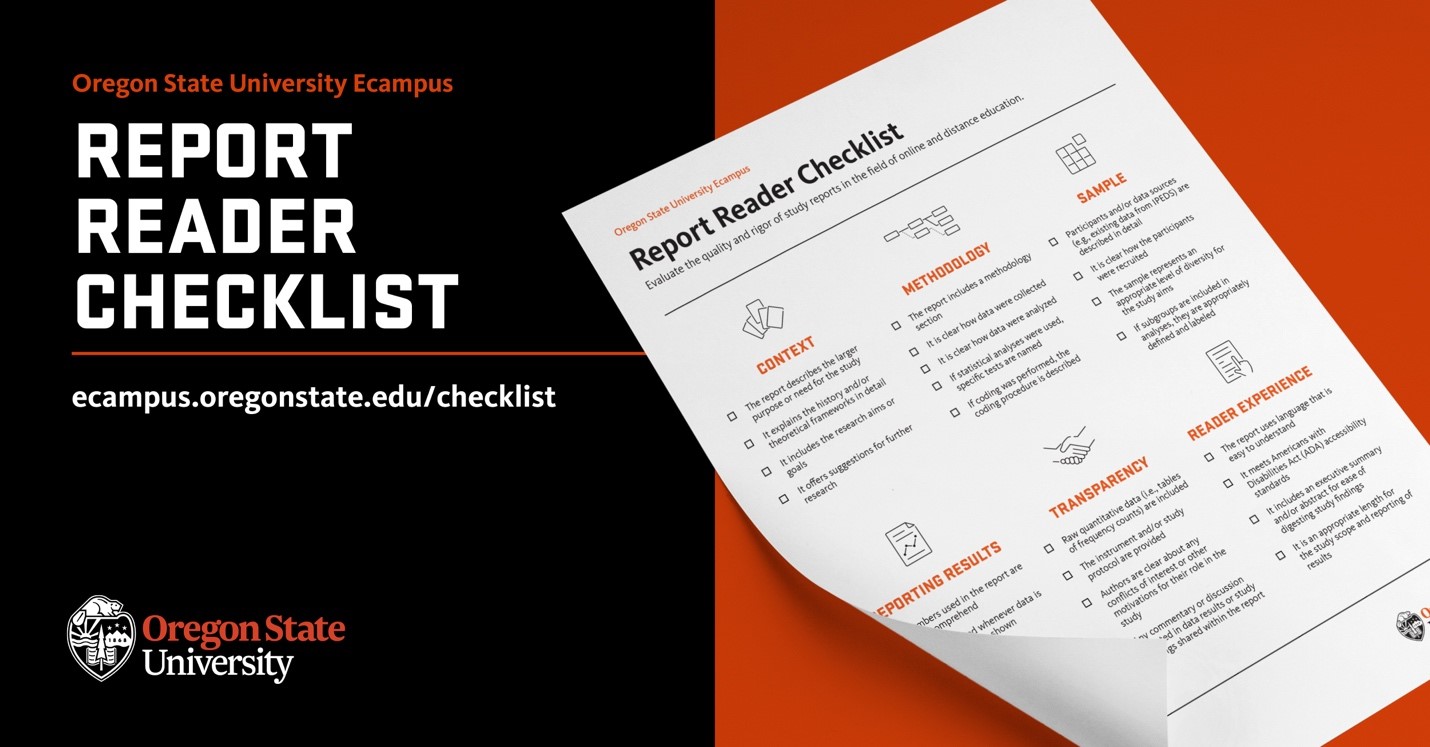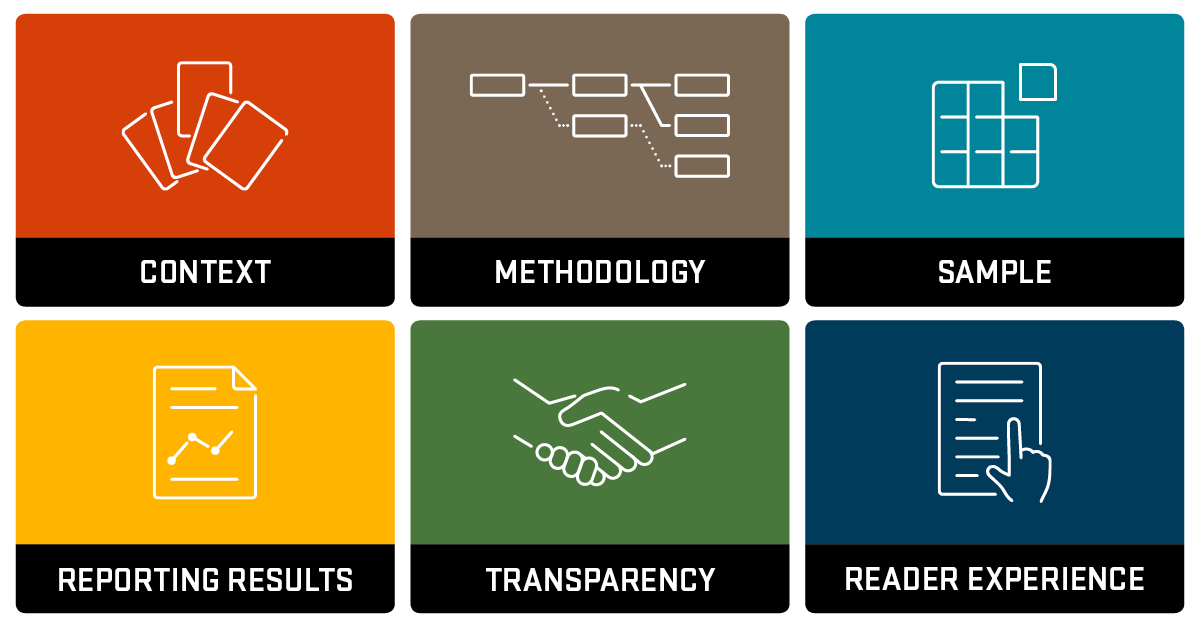Announcing the Report Reader Checklist: Your newest research resource
Published by: WCET | 1/18/2019
Tags: Course Design, Distance Education, Faculty, Managing Digital Learning, Online Learning, Professional Development, Research
Published by: WCET | 1/18/2019
Tags: Course Design, Distance Education, Faculty, Managing Digital Learning, Online Learning, Professional Development, Research
Today we’re excited to welcome Mary Ellen Dello Stritto and Kathryn Linder from the Oregon State University Ecampus Research Unit to introduce an excellent new resource: the Report Reader Checklist. This checklist is a set of criteria that can help guide report readers and evaluate online education.
Thank you to Mary Ellen and Katie for joining us to review this important resource. Congratulations on its release!
Enjoy the read and enjoy your day,
Lindsey Downs, WCET
The Oregon State University Ecampus Research Unit is excited to share a new resource we created to help a range of stakeholders make data-driven decisions. Our new Report Reader Checklist includes a comprehensive set of criteria that offers a guide for those who are reading reports to evaluate the quality and rigor of online education study reports that they may encounter in their work. The checklist features six focus areas:

The Report Reader Checklist was created to serve three main purposes:
The checklist is intended to provide an overview of the foundational elements that should be included when reporting the results of a study. Report readers can then apply each checklist criterion to a report to determine whether that element has been included or not. If readers find one area (e.g., “Context” or “Methodology”) that is missing several criteria within a report, this would indicate that a report is weaker in that particular area.

The following contains an overview of the six areas of the checklist, along with the criterion in each area:
Does the report describe the larger purpose of the study? Does it explain the history or theoretical framework? Does the report include research goals and suggestions for further research?
Does the report have a methodology section? Is it clear how data were collected and analyzed? If the study used statistics, were they named? If coding was used, was the procedure described?
Are the study participants described in detail? Is it clear how participants were recruited? Does the sample represent an appropriate level of diversity? Are subgroups appropriately identified?
Are all numbers in the report easy to comprehend? Is the “N” provided? Does the report identify missing data? Is it clear where study findings fit with the study’s purpose? Do data visualizations enhance your understanding of the results?
Are raw data included in the report? Are instruments or study protocols provided in the report? Are the authors clear about any conflicts of interest? Is the discussion rooted in data results?
Does the report use language that is easy to understand? Is the report ADA accessible? Does it include a summary or abstract? Is the study an appropriate length?
Download a one-page PDF of the checklist and access additional details for each criterion and our list of exemplar reports for each criterion.

Mary Ellen Dello Stritto
Assistant Director
Ecampus Research Unit, Oregon State University
maryellen.dellostritto@oregonstate.edu

Kathryn Linder
Director
Ecampus Research Unit, Oregon State University
kathryn.linder@oregonstate.edu
About the Oregon State University Ecampus Research Unit: The OSU Ecampus Research Unit makes research actionable through the creation of evidence-based resources related to effective online teaching, learning, and program administration. The OSU Ecampus Research Unit is part of Oregon State Ecampus, the university’s top-ranked online education provider.

1 reply on “Announcing the Report Reader Checklist: Your newest research resource”
[…] January, the Oregon State University Ecampus Research Unit announced our Report Reader Checklist in WCET Frontiers. This resource includes a comprehensive set of criteria that offers a guide for those reading […]